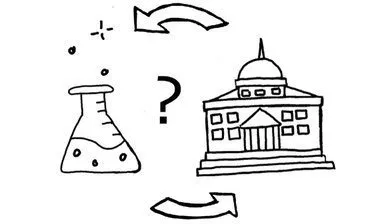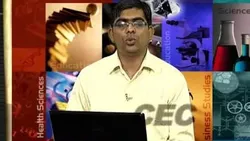
Tools for Academic Engagement in Public Policy 
This course provides tools to help researchers engage with public policy in an informed and effective way. It covers the necessary skills to understand and address complex and technical public policy issues, enabling researchers to contribute to the development of meaningful solutions. ▼
ADVERTISEMENT
Course Feature
![]() Cost:
Cost:
Free
![]() Provider:
Provider:
Edx
![]() Certificate:
Certificate:
No Information
![]() Language:
Language:
English
![]() Start Date:
Start Date:
Self paced
Course Overview
❗The content presented here is sourced directly from Edx platform. For comprehensive course details, including enrollment information, simply click on the 'Go to class' link on our website.
Updated in [March 06th, 2023]
This course, Tools for Academic Engagement in Public Policy, provides an essential introduction to the policymaking process through the lens of the U.S. federal government. It will equip researchers with the skills and knowledge to effectively engage with policymakers and articulate the policy implications of their work.
The course will focus on understanding the complex public policy ecosystem, its many stakeholders, and the role research and evidence play in the creation of public policy. It will also cover strategies for informing the policymaking community with research results, developing a pitch for policy audiences, and the importance of building two-way dialogues with policymakers.
By the end of the course, participants will have a better understanding of the policymaking process and the tools to effectively engage with policymakers.
[Applications]
Upon completion of this course, participants should be able to apply the knowledge and skills they have acquired to engage with public policy stakeholders and effectively communicate the policy implications of their research. They should also be able to develop strategies for engaging with policymakers and building two-way dialogues. Additionally, they should be able to develop a pitch for policy audiences and understand the importance of evidence-based policymaking.
[Career Paths]
1. Public Policy Analyst: Public policy analysts are responsible for researching, analyzing, and evaluating public policy issues and making recommendations to government officials. They must have a deep understanding of the policymaking process and be able to effectively communicate their findings to policymakers. As public policy becomes increasingly complex, the demand for public policy analysts is expected to grow.
2. Policy Advisor: Policy advisors provide advice and guidance to government officials on a variety of policy issues. They must have a strong understanding of the policymaking process and be able to effectively communicate their recommendations to policymakers. As public policy becomes increasingly complex, the demand for policy advisors is expected to grow.
3. Policy Researcher: Policy researchers are responsible for researching and analyzing public policy issues and providing evidence-based recommendations to policymakers. They must have a deep understanding of the policymaking process and be able to effectively communicate their findings to policymakers. As public policy becomes increasingly complex, the demand for policy researchers is expected to grow.
4. Policy Strategist: Policy strategists are responsible for developing and implementing strategies to influence public policy. They must have a deep understanding of the policymaking process and be able to effectively communicate their strategies to policymakers. As public policy becomes increasingly complex, the demand for policy strategists is expected to grow.
[Education Paths]
Recommended degree paths:
1. Master of Public Policy: This degree program provides students with the knowledge and skills to analyze public policy issues, develop policy solutions, and effectively communicate those solutions to stakeholders. It also covers the fundamentals of public policy, including economics, political science, and public administration. Developing trends in this field include the use of data-driven decision-making and the use of technology to improve policy outcomes.
2. Master of Public Administration: This degree program focuses on the management of public organizations and the development of public policy. It covers topics such as public finance, public management, and public policy analysis. Developing trends in this field include the use of technology to improve public service delivery and the use of data-driven decision-making.
3. Master of Science in Public Policy: This degree program provides students with the knowledge and skills to analyze public policy issues, develop policy solutions, and effectively communicate those solutions to stakeholders. It also covers the fundamentals of public policy, including economics, political science, and public administration. Developing trends in this field include the use of data-driven decision-making and the use of technology to improve policy outcomes.
4. Master of Science in Public Administration: This degree program focuses on the management of public organizations and the development of public policy. It covers topics such as public finance, public management, and public policy analysis. Developing trends in this field include the use of technology to improve public service delivery and the use of data-driven decision-making.
Course Provider

Provider Edx's Stats at AZClass
Tools for Academic Engagement in Public Policy provides tools to help researchers engage with public policy in an informed and effective manner. It covers the skills necessary to understand and solve complex and technical public policy problems, enabling researchers to contribute to the development of meaningful solutions. Learners gain a comprehensive understanding of the public policy ecosystem and the role of research and evidence in decision-making. They will learn how to effectively engage with policymakers and articulate the policy implications of their work. They will also gain strategies for communicating research findings to the policymaking community, advocating for policy audiences, and establishing a two-way dialogue with policymakers.
Discussion and Reviews
0.0 (Based on 0 reviews)
Explore Similar Online Courses

Personal Finance Part 1: Investing in Yourself

Flask Users Sessions and Authentication

Python for Informatics: Exploring Information

Social Network Analysis

Introduction to Systematic Review and Meta-Analysis

The Analytics Edge

DCO042 - Python For Informatics

Causal Diagrams: Draw Your Assumptions Before Your Conclusions

Whole genome sequencing of bacterial genomes - tools and applications

The Ideal of Self-Governance: Public Policy Beyond Markets and States

Public Administration


Start your review of Tools for Academic Engagement in Public Policy